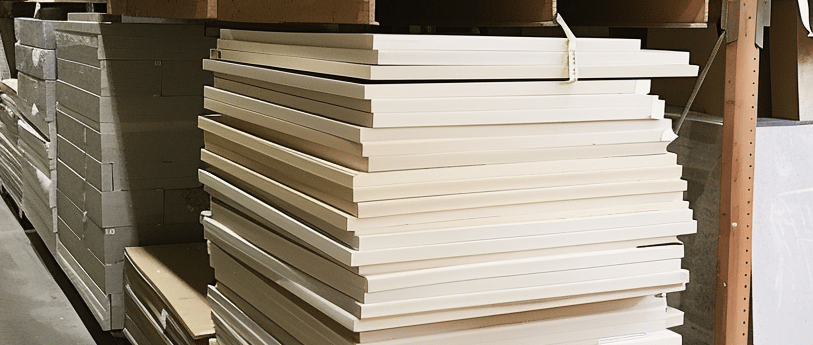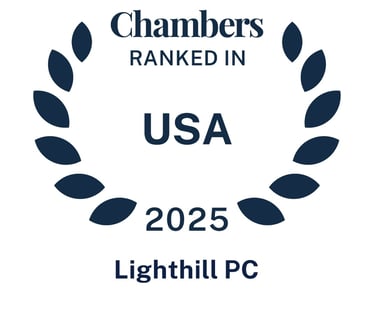Ceramic Tile from India
Petitions for Antidumping & Countervailing Duties


The Coalition for Fair Trade in Ceramic Tile, comprising nine U.S. producers, filed international trade petitions against imports of ceramic tile from India. The total value of the subject imports in 2023 was about $191 million.
The petitions threaten the imposition of antidumping (“AD”) and countervailing duties (“CVD”) on imports of ceramic tile, alleging the following duty rates:
Antidumping Duties
408-828 percent
Countervailing Duties
Countervailing duty rates will depend on the number of subsidy programs, the amount of benefits received, and the specific company's revenue. These rates typically vary between single and triple digits. The petitions include subsidy allegations for 24 national and 5 state government programs.
For foreign producers, exporters, and U.S. importers participating in these investigations, the duty rates often end up much lower than the alleged rates, sometimes resulting in no duties imposed at all.
The Focus of the Investigations:
The petitions were filed with the two U.S. agencies involved in antidumping and countervailing duty investigations: the U.S. International Trade Commission (ITC) and the U.S. Department of Commerce (DOC).
1. The DOC will calculate the dumping margins and countervailable subsidy rates for foreign exporters of ceramic tile from India.
2. The ITC will assess whether imports from India is causing material injury to the U.S. ceramic tile industry.
Dumping occurs when a foreign company sells a product in the U.S. at a price below its normal value, which is assessed based on the company's above-cost sales in its home market or a comparable market. This evaluation aims to identify price discrimination.
Countervailable subsidies consist of financial assistance provided by foreign governments that benefit the production, manufacture, or exportation of goods, specifically targeting the exporter, industry, or geographic region. Such subsidies can take various forms, including discounted loans, tax breaks, direct grants, or low-cost rent.
The injury investigation examines whether the U.S. industry suffers material injury or faces a threat of material injury by reason of the allegedly dumped and subsidized imports.
Participation:
The DOC is currently evaluating the sufficiency of the petitions and is set to decide whether to officially launch the investigations by May 9, 2024. After the initiation, participation is almost always vital for maintaining U.S. market share and staying competitive.
In the antidumping and countervailing duty investigations, the DOC normally examines two companies, typically chosen based on their export volume to the U.S. These companies will be required to actively participate in the investigations, and the dumping margins and countervailable subsidy rates determined for them will likely set the duty rates for other producers and exporters.
The ITC initiated its injury investigation on April 19, 2024, and will have 45 days to reach a preliminary determination. Producers, importers, and exporters can participate in this investigation by responding to questionnaires about the production, importation, and sales of ceramic tile. These questionnaires are due by May 3, 2024. Parties can also defend themselves at the ITC against claims that imports are harming the U.S. industry.
Retroactive Duties:
Duty may be required for merchandise currently in transit or expected to be shipped soon. Antidumping and countervailing duties normally become effective when the DOC makes affirmative preliminary determinations. However, if the petitioner later alleges critical circumstances and dumping or subsidization is determined, imports arriving after April 19, 2024 (the petition filing date), but before the AD and CVD preliminary determination dates, could face retroactive cash deposits.
Key Dates:
DOC Initiation: May 9, 2024
ITC Preliminary Determination: June 3, 2024
DOC CVD Preliminary Determinations: July 15, 2024
DOC AD Preliminary Determinations: September 26, 2024
DOC CVD Final Determinations: September 26, 2024
DOC AD Final Determinations: December 10, 2024
ITC Final CVD Determination: November 11, 2024
ITC Final AD Determination: January 24, 2025
Issuance of Orders: January 31, 2025
Note: The above deadlines are estimates and might be extended under certain circumstances.
REQUESTED SCOPE OF MERCHANDISE UNDER CONSIDERATION
The merchandise covered by the order is ceramic flooring tile, wall tile, paving tile, hearth tile, porcelain tile, mosaic tile, flags, finishing tile, and the like (hereinafter ceramic tile). Ceramic tiles are articles containing a mixture of minerals including clay (generally hydrous silicates of alumina or magnesium) that are fired so the raw materials are fused to produce a finished good that is less than 3 .2 cm in actual thickness. All ceramic tile is subject to the scope regardless of end use, surface area, and weight, regardless of whether the tile is glazed or unglazed, regardless of the water absorption coefficient by weight, regardless of the extent of vitrification, and regardless of whether or not the tile is on a backing. Subject merchandise includes ceramic tile with decorative features that may in spots exceed 3.2 cm in thickness and includes ceramic tile "slabs" or "panels" (tiles that are larger than 1 meter 2 (11 ft.2)).
Subject merchandise includes ceramic tile that undergoes minor processing in a third country prior to importation into the United States. Similarly, subject merchandise includes ceramic tile produced that undergoes minor processing after importation into the United States. Such minor processing includes, but is not limited to, one or more of the following: beveling, cutting, trimming, staining, painting, polishing, finishing, additional firing, affixing a decorative surface to the tile, or any other processing that would otherwise not remove the merchandise from the scope of the order if performed in the country of manufacture of the in-scope product.
Subject merchandise is currently classified in the Harmonized Tariff Schedule of the United States (HTSUS) under the following subheadings of heading 6907: 6907.21.1005, 6907.21.1011, 6907.21.1051, 6907. 21.2000, 6907.21.3000, 6907.21.4000, 6907.21.9011, 6907.21.905 1, 6907. 22.1005, 6907.22.1011, 6907.22.1051, 6907.22.2000, 6907.22.3000, 6907.22.4000, 6907.22. 9011, 6907.22.9051, 6907.23.1005, 6907.23.10 11, 6907. 23. 10 5 1, 6907.23.2000, 6907.23.3000, 6907.23 .4000, 6907. 23.9011, 6907. 23 .9051, 6907.30.1005, 6907.30.1011, 6907 .30.1051, 6907 .30. 2000, 6907 .30.3000, 6907 .30.4000, 6907.30.9011, 6907.30.905 1, 6907.40.1005, 6907.40.1011, 6907.40.10 51, 6907.40.2000, 6907.40.3000, 6907.40.4000, 6907.40.9011, and 6907.40. 905 1. Subject merchandise may also enter under subheadings of headings 6914 and 6905: 6914.10.8000, 6914.90.8000, 690 5.10.0000, and 6905.90.0050. The HTSUS subheadings are provided for convenience and customs purposes only. The written description of the scope of the order is dispositive.




